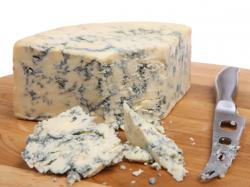British Cheese Makers: Why Even France Wants A Bite Of Our Cheese
December 30, 2014 | 2 min to read

British cheese exports are set to hit a record high this year as the world gains a taste for a traditional British product. The latest figures from HMRC show that as of September UK cheese exports have risen by 8.2%. Cheese production for 2014 will be in the region of 400,000 tonnes, with about 130,000 tonnes exported. “Exports have been gradually increasing over the years and, in part, that’s due to increased milk production,” says Nigel White, head of trade body the British Cheese Board. “The bulk of these exports are commercial cheeses, which are sold to businesses. But while premium exports such as mature cheddars, Stilton and speciality cheeses form a minority, they produce very good returns.”
“The UK has had a chequered past with cheese making,” says White. A lack of milk during the inter-war and post-war periods meant the UK was heavily dependent on imports. From the 1930s, the government controlled production and supply to ensure the masses had a decent diet. Dairy farms, which had to sell their production to the Milk Marketing Board, struggled to create their own cheeses. “We’ve never produced enough milk in this country. Ever since the repeal of the Corn Laws, UK farms have had to compete with world prices when nearly every other country has quotas,” says White.
Many of the UK’s burgeoning artisan cheese makers are creating products based on centuries old recipes. The domestic market, however, is dominated by big supermarkets and massive food companies competing on price, and is not an easy place for small and medium sized businesses to operate. In order to protect their bottom lines, cheese makers and creameries are therefore turning to exports. “Exports are also a response to a very competitive domestic market, it’s a tough one to operate in,” says White. “The supermarkets are very powerful and so margins have been squeezed. Small makers have gone to a lot of trouble to export as they see it as a way to offset the risk.”
To read the rest of the story, please go to: The Guardian
